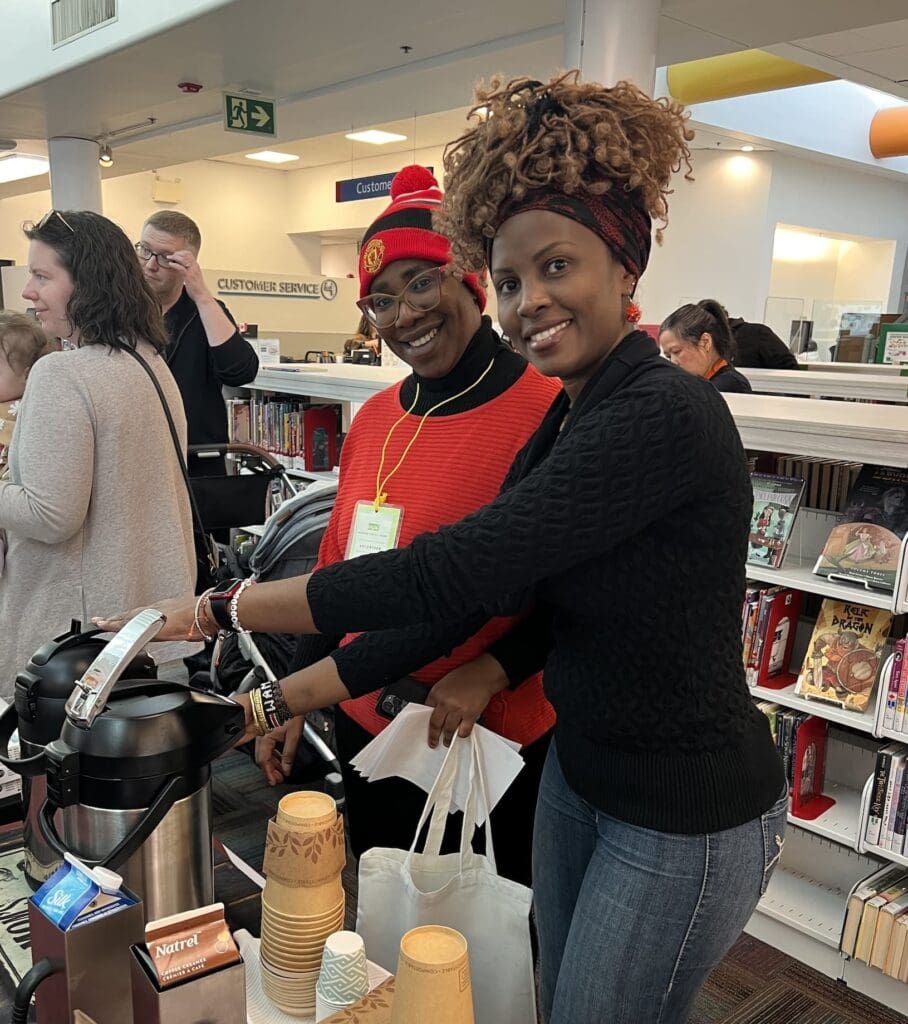
How do you take your coffee?
I enjoy my coffee black—no sugar, no cream—just noir. This allows me to appreciate the rich, complex flavors of Kenyan coffee, from its bright acidity to its smooth, fruity finish.
Tell us about some of the challenges (and joys!) of being a coffee entrepreneur
One of the greatest joys of being in the coffee industry is the opportunity to educate people about Kenyan coffee—its rich history, unique processing methods, and the hardworking farmers behind every bean. Many consumers in North America appreciate specialty coffee, but few truly understand the origins and impact of their choices. I love bridging this gap by connecting them with the stories of the farmers who cultivate their coffee.
Another major focus for me is women empowerment in coffee. As a member of Kipkelion Women in Coffee, I have the privilege of working alongside a group of dedicated and ambitious women coffee producers, helping them connect with buyers who share the mission of empowering women in the coffee supply chain.
One of the biggest challenges has been breaking into an industry where large, established brands dominate the market, making it difficult for small businesses, especially those directly linked to producers, to gain traction in mainstream retail and distribution. However, through direct trade relationships, consumer education, and partnerships with values-aligned buyers, I’ve been able to create opportunities for Kenyan farmers while growing our presence in North America.
At origin, we face the risk of declining youth engagement, a critical area to the sustainability of coffee farming. If we don’t invest in the next generation of coffee professionals, we risk losing coffee farming as a viable career. By encouraging young people to see coffee as an exciting industry with opportunities beyond farming—such as entrepreneurship, roasting, and exporting—we can ensure coffee’s long-term sustainability.
How has being part of the BIPOC community strengthened or challenged your experience in Canadian coffee?
Being a Black woman in coffee in North America has been both empowering and eye-opening. Coming from Nyeri, Kenya, where coffee farming is deeply ingrained in our culture, I feel privileged to showcase our Kenyan coffee in North America.
Strengths:
Challenges:
Turning Challenges into Opportunities
Being part of Kipkelion Women in Coffee has reinforced my commitment to creating pathways for women in coffee at large. I have seen firsthand how access to international markets, direct trade, and fair compensation transforms lives, and I am committed to ensuring these opportunities continue to grow for Kenyan farmers and beyond.
If you could work towards ONE thing to increase diversity & inclusion in Canadian coffee, what would this be?
I would focus on expanding market access for BIPOC coffee entrepreneurs and producers. Many BIPOC entrepreneurs, women, and smallholder farmers struggle to scale due to a lack of funding, distribution opportunities, and brand recognition.
By fostering long-term, equitable relationships between Canadian roasters and coffee producers from origin, we can create a more inclusive and sustainable coffee industry—one where farmers are not just suppliers but valued stakeholders.
Additionally, mentorship and education for women and youth are key. Through our women’s group, I witness how economic empowerment continues to transform communities. We must ensure that the next generation sees coffee as a viable and fulfilling career path, not just in farming but across the entire coffee value chain—from production to leadership roles in the global coffee industry.